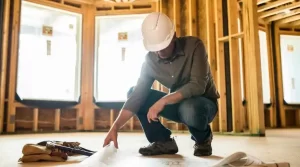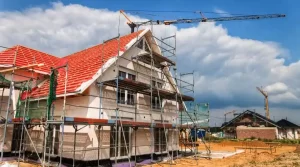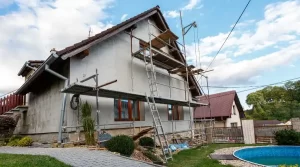Embarking on a whole home remodeling project is an exciting but challenging endeavor. If you’re considering remodeling your entire home and don’t know where to begin, follow these essential steps for a smooth and successful renovation:
1. Determine What You Can DIY and What Requires a Contractor
Assess the scope of your project and decide which tasks you can handle yourself and which ones require the expertise of a contractor. Simple tasks like painting, baseboard installation, and small-scale demolition can be done by amateurs. However, more complex projects like door or window installation and large demolitions may require professional contractors.
2. Establish Your Budget
Create a comprehensive budget by considering all the expenses involved, such as labor costs, materials, and equipment. Thorough and accurate budgeting is crucial for managing costs and preventing financial setbacks during the renovation.
3. Decide on the Design and Style
Choose a cohesive design and style for your home. Whether you prefer a modern, sleek look, a rustic Victorian-style, or a charming farmhouse ambiance, having a clear vision will guide your decisions throughout the remodeling process.
4. Acquire the Necessary Permits
Check local regulations to determine if your remodeling project requires permits. Structural changes, new windows, and plumbing or electrical modifications typically needs permits. Compliance with building codes is essential to avoid legal issues and liabilities, and ensure a safe renovation.
5. Consider Builder’s Risk Insurance
For significant construction projects, consider obtaining builder’s risk insurance to protect against property loss due to natural disasters, theft, or vandalism. Verify what coverage your homeowner’s policy provides and supplement it with additional insurance if necessary.
6. Create a Realistic Timeline
Develop a detailed timeline for your renovation, including each task’s estimated completion date. A well-structured schedule will help you stay on track and avoid unnecessary delays and disruptions.
7. Begin Your Renovation
With a solid plan in place, it’s time to start your whole home remodeling project. Whether you handle some tasks yourself or hire professional contractors, be proactive and maintain open communication to ensure a successful renovation.
Pro Tips for a Successful Home Renovation
1. Give Yourself Extra Time
Plan for unexpected delays by adding extra time to your timeline. It’s better to finish your renovation ahead of schedule than to feel rushed and stressed.
2. Research and Compare Contractors
Before hiring a professional contractor, do a research first. Compare their services, rates, and reputation. Don’t settle for the first contractor you come across; having multiple options will help you make an informed decision.
3. Overestimate Your Budget
To avoid financial surprises, overestimate your budget and allocate a buffer for unforeseen expenses.
Cost Estimates for Whole Home Remodeling
The cost of your whole home remodel will depend on various factors, including your location and specific renovation needs. Here are the three cost categories to consider:
1. Low-Cost Remodel ($20,000 – $50,000)
- Interior and exterior painting
- Basic flooring
- Baseboards
- Landscaping
2. Medium-Cost Remodel ($50,000 – $100,000)
- Full bathroom and kitchen remodel
- Higher-end flooring, countertops, and cabinets
3. High-Cost Remodel ($100,000 – $250,000)
- Professional-quality flooring
- Full bedroom renovations
- Electrical, plumbing, or sewer upgrades
- Custom projects like cabinets and range hoods
- Roof and window replacements
DIY Whole House Remodeling
It is possible to undertake a whole home remodel entirely by yourself, but it requires time, dedication, and learning new skills. YouTube and other resources offer valuable DIY renovation tutorials, making self-remodeling more accessible.
Renovating vs. Building a New Home
Should you buy new or remodel your home? This question depends on your specific circumstances. If your current home only requires minor upgrades, renovating may be more cost-effective. However, extensive foundation, plumbing, or electrical issues may make building a new home a more sensible option.
Timeline for Whole Home Remodeling
A whole home remodeling project typically takes anywhere from four months to a year. Keeping a well-structured timeline and regular communication with contractors will help ensure the process moves forward efficiently.
Living in Your Home During Renovation
Living in your home during renovation is possible but can be messy and inconvenient. Be prepared for dust and potential health hazards like paint fumes. While cost-effective, living on-site may motivate you to complete the project faster.
Undertaking a whole home remodeling project requires careful planning, budgeting, and a reliable team of professionals. By following these steps and tips, you can successfully navigate the remodeling process and turn your house into your dream home. Remember to be patient and flexible, as unexpected challenges may arise. With the right mindset and preparation, your whole home remodel will be a rewarding and transformative experience.







